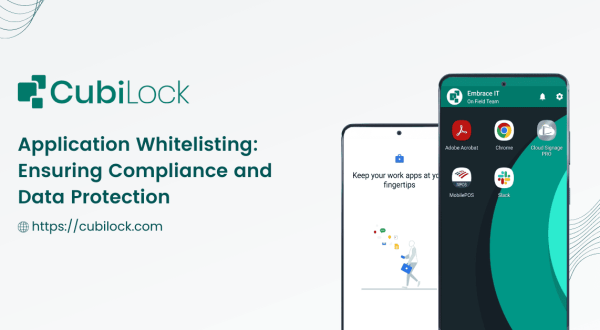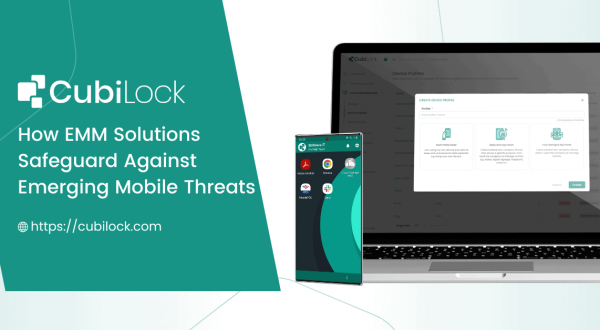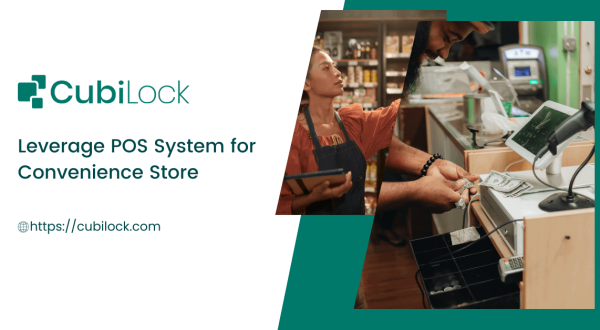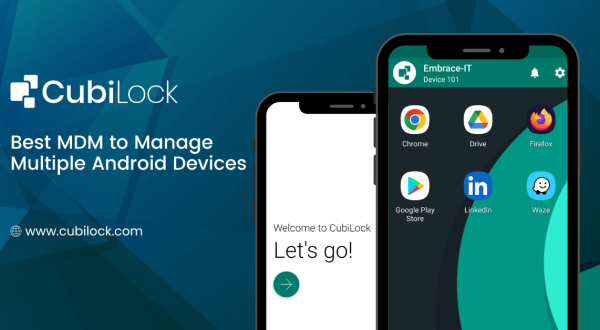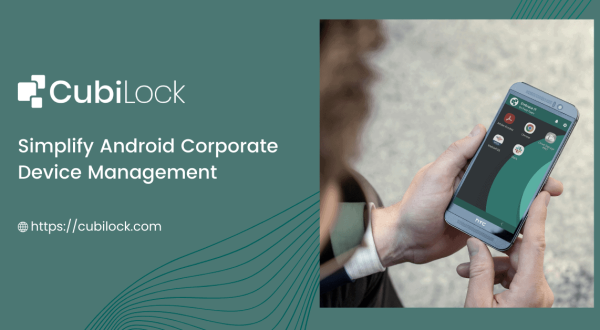Unveiling BYOD, COPE, COSU, CYOD, and COBO
- August 7, 2023
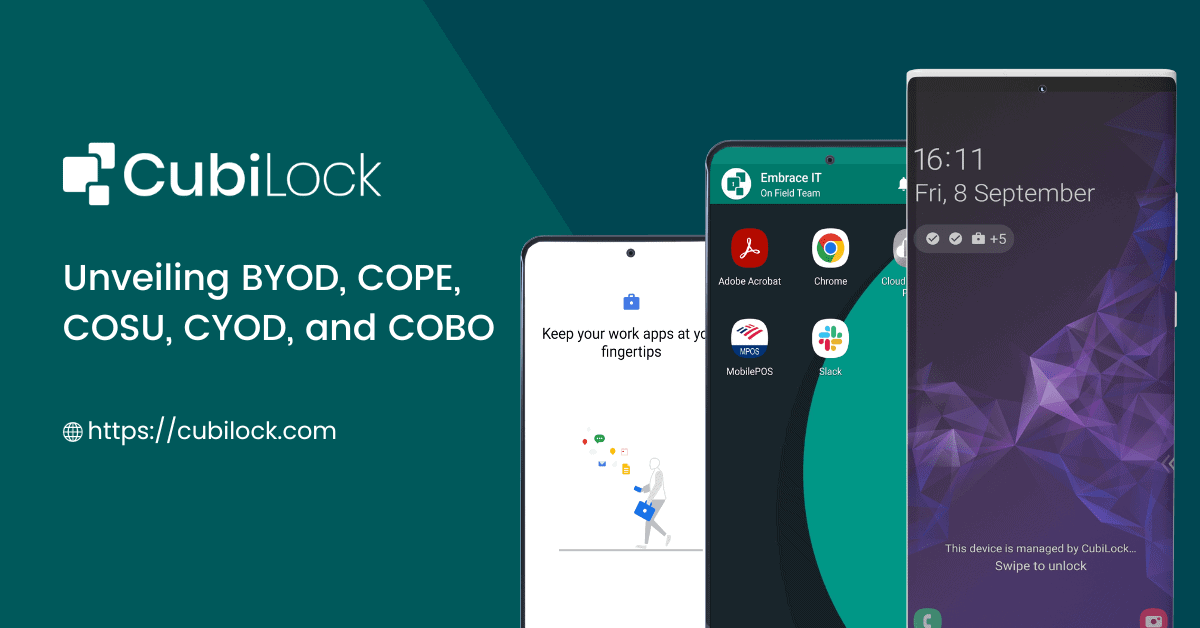
The dynamic landscape of modern business has ushered in an era where mobile devices play a pivotal role in shaping productivity, connectivity, and efficiency. To navigate this digital revolution, organizations are presented with a spectrum of mobile device management strategies, and leverage digitalization regardless of their choice among BYOD, CYOD, COPE, and COBO. This blog will delve into the essence of five prominent strategies: Bring Your Own Device (BYOD), Company-Owned, Personally-Enabled (COPE), Corporate-Owned, Single-Use (COSU), Choose Your Own Device (CYOD), and Company-Owned, Business-Only (COBO). We will also explore how Enterprise Mobility Management (EMM solutions) can serve as a cornerstone in effectively harnessing the potential of these strategies to meet organizational objectives.
BYOD CYOD COPE COBO – What Is It and How EMM Plays a Better Role in Leveraging It
Bring Your Own Device (BYOD)
BYOD allows employees to use their personal devices for both personal and professional tasks. While it offers flexibility and familiarity, it also introduces security and privacy concerns.
Leveraging EMM for BYOD: Enterprise Mobility Management (EMM) solutions help organizations manage the security and accessibility of devices in a BYOD environment. EMM software offers features such as mobile device management, application management, and security controls. For example, EMM solutions enable IT administrators to enforce encryption, implement remote wipe capabilities, and ensure that only authorized devices can access corporate resources.
Company-Owned, Personally-Enabled (COPE)
COPE involves providing employees with company-owned devices that can be used for personal tasks under certain restrictions. This strategy balances control and flexibility.
Leveraging EMM for COPE: EMM solutions in a COPE context allow organizations to configure devices to meet security standards and corporate policies while providing a certain degree of personal freedom. EMM platforms offer capabilities to manage app installations, device configurations, and security settings. For instance, EMM software can enable IT teams to configure app whitelists (enforce multi or single app mode), enforce password policies, and remotely monitor device usage.
Corporate-Owned, Single Use (COSU)
COSU entails deploying devices dedicated to a specific business application or task. This strategy is particularly beneficial for kiosks, digital signage, and specialized tasks.
Leveraging EMM for COSU: EMM solutions can streamline COSU implementations by allowing IT administrators to lock down devices to a single application, ensuring they remain focused on their designated function. These solutions enable remote management of COSU devices, facilitating tasks such as software updates, configuration changes, and troubleshooting.
Choose Your Own Device (CYOD)
CYOD allows employees to select a device from a predetermined list of company-approved options. This approach bridges the gap between BYOD and COPE, offering security and choice.
Leveraging EMM for CYOD: EMM solutions play a pivotal role in CYOD strategies by providing a range of devices that have been pre-approved and secured by IT. EMM platforms assist in configuring and managing these devices, ensuring they adhere to organizational policies. This includes features like remote wipe, app distribution, and compliance enforcement.
Company-Owned, Business-Only (COBO)
COBO is a stringent strategy where company-owned devices are used exclusively for business tasks. This approach emphasizes security and compliance.
Leveraging EMM for COBO: EMM solutions are fundamental for implementing COBO strategies, as they empower organizations to maintain rigorous control over devices and data. EMM platforms enable IT administrators to restrict device functionality, manage applications, enforce encryption, and maintain compliance with industry regulations.
Leveraging BYOD CYOD COPE COBO According to Convenience
The rapid advancement of technology has transformed the way businesses operate, leading to the rise of diverse work practices and strategies. Among these, the concepts of BYOD (Bring Your Own Device), CYOD (Choose Your Own Device), COPE (Corporate-Owned, Personally Enabled), and COBO (Corporate-Owned, Business Only) have gained prominence. Enterprises are increasingly recognizing the significance of these approaches in enhancing productivity, flexibility, and employee satisfaction while ensuring data security and compliance. By leveraging these strategies effectively, enterprises can achieve a balance between technological agility and robust data management. This article delves into the key aspects of BYOD, CYOD, COPE, and COBO and their importance for modern enterprises.
BYOD (Bring Your Own Device) is a practice where employees use their personal devices, such as laptops, smartphones, or tablets, for work purposes. This approach offers numerous advantages, including increased employee satisfaction, improved flexibility, and cost savings for the organization. Employees can use their preferred devices, which they are already familiar with, leading to higher productivity and efficiency. However, BYOD also poses significant challenges in terms of data security and privacy. Enterprises must implement stringent security measures, such as robust encryption and secure network protocols, to mitigate the risks associated with unauthorized access and data breaches.
On the other hand, CYOD (Choose Your Own Device) allows employees to select their devices from a list of company-approved options. This approach strikes a balance between the flexibility of BYOD and the control of COPE. By offering employees a range of pre-approved devices, enterprises can maintain a certain level of control over hardware and software standards while accommodating individual preferences. This ensures a standardized user experience and simplifies device management and support for the IT department. However, the initial investment in providing employees with device options and the associated infrastructure can be substantial.
COPE (Corporate-Owned, Personally Enabled) involves companies providing employees with corporate-owned devices that they can also use for personal tasks. COPE allows organizations to exercise greater control over hardware, software, and security protocols while enabling employees to use the devices for their personal needs. This approach ensures a higher level of security and compliance, as IT departments can enforce strict data protection policies and implement centralized management solutions. COPE can boost productivity and streamline workflows by providing a consistent and secure computing environment. However, employees may perceive this approach as intrusive, as it blurs the line between work and personal life.
COBO (Corporate-Owned, Business Only) is a strategy in which companies provide employees with devices dedicated exclusively to work-related tasks. COBO ensures the highest level of control and security, as the devices are restricted to business applications and data. This approach minimizes the risk of data breaches and unauthorized access, making it ideal for highly regulated industries and organizations dealing with sensitive information. However, the limitations on device usage for personal tasks may lead to reduced employee satisfaction and work-life balance concerns.
To effectively leverage BYOD, CYOD, COPE, and COBO, enterprises must develop comprehensive strategies that align with their business objectives and security requirements. Implementing robust security measures, such as encryption, multi-factor authentication, and remote data wiping capabilities, is crucial to safeguard sensitive information. Furthermore, organizations should establish clear policies and guidelines for device usage, data access, and privacy to ensure compliance with regulatory standards and industry best practices.
By adopting a holistic approach that integrates elements of BYOD, CYOD, COPE, and COBO, enterprises can strike a balance between empowering employees and maintaining robust data security measures. Organizations need to conduct regular assessments and audits to identify potential vulnerabilities and implement timely updates and patches to enhance the overall security posture. Additionally, providing employees with comprehensive training on data security best practices and potential risks associated with device usage is essential to foster a culture of security awareness and compliance within the organization.
The convergence of BYOD, CYOD, COPE, and COBO has revolutionized the way enterprises approach device management and data security. Each approach offers unique benefits and challenges, and the choice of strategy largely depends on the specific requirements and priorities of the organization. By understanding the nuances of each approach and implementing tailored solutions, enterprises can harness the power of technology while safeguarding critical business data and maintaining regulatory compliance.
Organizations have a diverse range of mobile device management strategies at their disposal. Bring Your Own Device (BYOD), Company-Owned, Personally-Enabled (COPE), Corporate-Owned, Single-Use (COSU), Choose Your Own Device (CYOD), and Company-Owned, Business-Only (COBO) each offer distinct advantages and challenges, catering to varying organizational needs and priorities. However, the effectiveness of these strategies can be greatly enhanced by the integration of Enterprise Mobility Management (EMM) solutions.
EMM solutions serve as the bedrock for managing and securing devices, applications, and data across these diverse strategies. With features ranging from remote management and security enforcement to application distribution and compliance monitoring, EMM platforms empower organizations to leverage the full potential of their chosen strategy. By seamlessly integrating EMM solutions into their operations, organizations can achieve the delicate balance between security, productivity, and employee satisfaction that is essential for success in the modern mobile-centric business landscape.

Vaishak Nair has 7+ years of experience in SaaS based-industry, loves to explore places that are quite close to nature.

